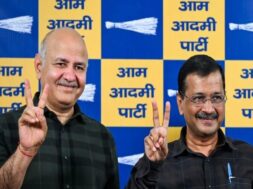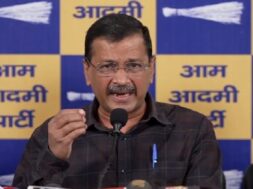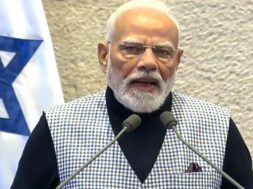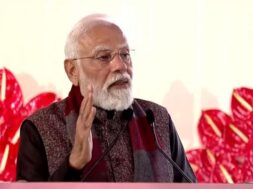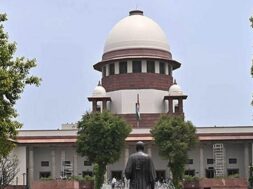Manas Dasgupta
NEW DELHI, July 8: Even as the new Information Technology minister Ashwini Vaishnaw repeated what his predecessor Ravi Shankar Prasad said “the law of the land should be abided by everyone,” the Delhi High Court on Thursday allowed the central to take action against Twitter India if it so desired.
“The central government was free to initiate action against Twitter in accordance with the IT Rules in case it had breached them,” Justice Rekha Palli ordered. The court also questioned Twitter for referring to the officers, required to be appointed in compliance of IT Rules, as interim.
Justice Rekha Palli granted two weeks’ time to Twitter to file hard copies of the notarised affidavit of a competent officer, while hearing a petition alleging non-compliance of the rules. However, the court said the scanned copy of the affidavit must be filed by July 13. It also said the affidavit should be accompanied by the affidavit of the officer already stated to have been appointed and the persons who are being appointed.
“It is made clear that since this court has only granted time to Twitter to file its affidavits to show compliance of the rules and there is no interim protection granted, it will be open for the Union of India to take action against Twitter in accordance with rules in case of any breach of the rules,” said the court, while listing the case for hearing on July 28.
Twitter in reply told the court that its first Compliance Report covering the period of May 26 to June 25 would be filed no later than July 11 in accordance with the 2021 Rules.
The micro-blogging site also told the court that it has engaged frequently with the Centre in respect of the requirements under the Rules, including on the issue of the concerned ministry “developing standard operating procedures as regards, in part, the liability of various officers appointed under Rule 4.”
However, Twitter also said it reserved its right to challenge the legality, validity, and vires of the Rules. “Twitter’s submissions regarding compliance are filed without prejudice to its right to challenge the Rules,” it said in the reply.
Twitter also told the court that it has appointed a resident of India as its interim Chief Compliance Officer effective July 6. Regarding the Nodal Contact Officer, Twitter said it would endeavour in good faith to make an offer to fill this position with a qualified candidate who is a resident of India, on an interim basis, within two weeks.
It also said it was in the process of making an offer of appointment to a resident of India as its interim Resident Grievance Officer and expects to do so on or before July 11. “Twitter intends to engage the services of the interim RGO as a contingent worker via a third party contractor. The details of this appointment will be updated on our Help Page as soon as possible,” reads the reply.
Amidst the on-going row between the centre and Twitter, Vaishnaw soon after taking over the charge of the Information Technology ministry on Thursday said all those who live and work in India would have to abide by the rules of the country.
The social media company has been in the eye of a storm over its alleged failure to comply with the new IT rules in India, which mandates, among other requirements, the appointment of three key personnel — chief compliance officer, nodal officer and grievance officer by social media platforms with over 50 lakh users. All three personnel have to be residents in India.
While the rules came into effect on May 26, Twitter is yet to adhere to the social media guidelines, despite repeated reminders from the government.
Meanwhile, the Supreme Court refused to stay the summons by the Delhi Assembly panel to Facebook India Managing Director Ajit Mohan over the Delhi riots case. In its order, the court also noted the need for social media platforms to show accountability to its users.
Calling the challenge by the Facebook head “premature”, a bench comprising of Justice SK Kaul, Justice Dinesh Maheshwari and Justice Hrishikesh Roy stated that while he must appear before the Peace and Harmony committee, any representative of the petitioner can choose not to answer questions outside of the Assembly’s domain.
Noting the popularity of the social media platform with nearly 270 million Indian users, the court in its order said entities like Facebook must “remain accountable to those who entrust them with such power.” Highlighting the spread of misinformation on such platforms, which has created ripples across the globe, the court elaborated that “election and voting processes, the very foundation of a democratic government, stand threatened by social media manipulation.”
The court held that the Assembly can look into the issues of “objective of peace and harmony” which go beyond law and order and police. “Because of the nature of the riots, the Assembly without transgressing into any field of the Union under 7 Schedule can look into the issue,” it said.
The bench laid emphasis on the transparency of the proceedings, and said the Peace and Harmony committee would have no jurisdiction over many issues, including the law and order of Delhi, which comes under the Central government. It added that the committee “cannot don the role of a prosecuting agency.”
The bench also took exception to certain statements made by the Committee in its press conference against Facebook. “Statements made by the Committee about making Facebook the co-accused in the charge-sheet are outside the scope of the Committee,” it said.
Mohan had approached the apex court challenging the September 10 and September 18 notices issued by Delhi Assembly’s peace and harmony committee that sought his presence before the panel.
As Delhi government argued Mohan had appeared before a parliamentary panel too, the central government backed Mohan and said the state assembly had “no power to issue notice, and Information Technology and laws relating to intermediaries fall within the domain of parliament.”
Technological age has produced digital platforms and “these are uncontrollable at times,” the Supreme Court observed today.
“Social media platforms have the power and potential to influence people across the border. Debates on these platforms, like Facebook, have the potential to polarise the society and less informed individuals may not verify the information and take it as gospel of truth,” the court said, commenting on the role of social media.
More than 50 people had died last year in February after the groups supporting the contentious citizenship law clashed with those opposing it.

